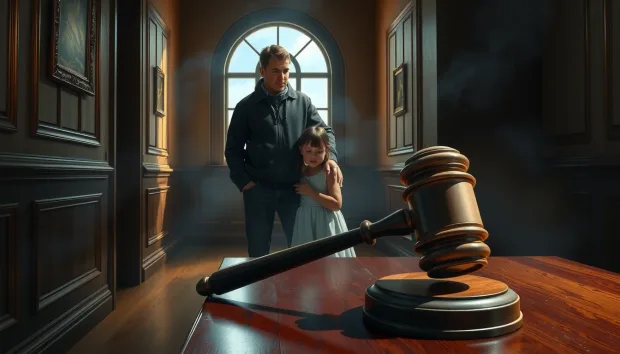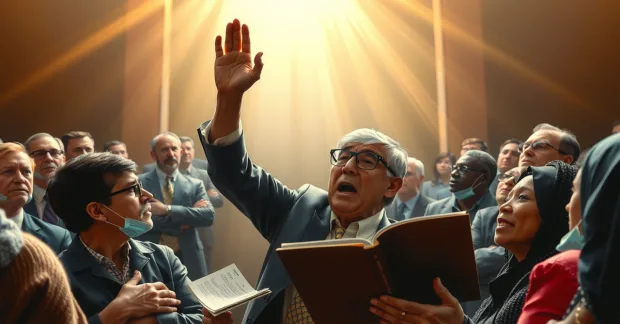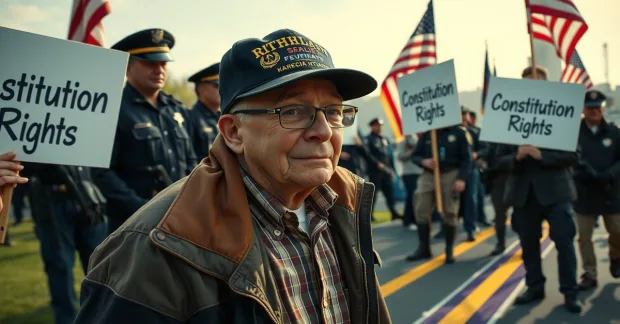
In the labyrinth of modern parenting, one question looms large: Are you liable for your child’s actions? This question isn’t just a fleeting thought but a Sword of Damocles hanging over every parent, threatening to drop at any moment. The concept of parental responsibility is not just a legal term but a profound reality that can have jaw-dropping consequences on your life.

The Unseen Burden of Parental Responsibility
Imagine this: Your child, in a moment of youthful indiscretion, causes significant property damage or worse, personal injury to someone. The repercussions are not just limited to the child but extend to you, the parent. Parental accountability is a legal doctrine that holds parents responsible for the actions of their children. This isn’t just about juvenile delinquency; it’s about the legal liability that can turn your world upside down.
The Scope of Parental Responsibility
Parental responsibility encompasses a wide range of duties and obligations. It includes ensuring your child’s well-being, education, and moral development. But it also means being accountable for their actions, especially when those actions cause harm to others. This responsibility can be both legal and moral, creating a complex web of obligations that parents must navigate.
Legal Definitions and Variations
The legal definition of parental responsibility can vary significantly from one jurisdiction to another. In some states, parents are held strictly liable for any damage caused by their children, while in others, liability is contingent upon proving negligence or lack of supervision. Understanding these variations is crucial for parents who want to protect themselves from potential legal pitfalls.
The Legal Quagmire: Understanding Your Liability
Parental responsibility laws vary from state to state, but the underlying principle remains the same: Parents can be held liable for their child’s actions. This can include vicarious liability, where you are indirectly responsible for the harm caused by your child. The legal consequences can be severe, ranging from financial penalties to criminal charges. Understanding these laws is crucial for every parent.
Vicarious Liability Explained
Vicarious liability is a legal doctrine that holds one person responsible for the actions of another. In the context of parental responsibility, it means that parents can be held liable for the wrongful acts of their children. This can include acts of negligence, intentional harm, or even criminal behavior. The rationale behind this doctrine is that parents have a duty to supervise and control their children’s behavior.
Financial Penalties and Criminal Charges
The financial penalties for parental liability can be substantial. Parents may be required to pay for property damage, medical expenses, and even emotional distress caused by their child’s actions. In some cases, parents can also face criminal charges if it is proven that they were grossly negligent in supervising their child. These penalties can have a devastating impact on a family’s financial stability and emotional well-being.
Shocking Realities: Recent Cases and Legal Precedents
Recent cases have shown the shocking extent of parental liability. In some instances, parents have been sued for negligence because they failed to supervise their children adequately. These cases highlight the suspenseful and often unpredictable nature of parental liability. The legal defense in such cases can be complex and costly, making it essential to seek legal advice and understand your rights and responsibilities.
High-Profile Cases
Several high-profile cases have brought the issue of parental liability into the public eye. For example, in one case, parents were held liable for their child’s involvement in a school shooting. The court found that the parents had failed to secure their firearms properly, leading to a tragic and preventable incident. Such cases underscore the importance of preventive measures and vigilant supervision.
Legal Precedents and Their Implications
Legal precedents set by these cases can have far-reaching implications for other parents. Courts often look to previous rulings when deciding new cases, which means that one high-profile case can influence the outcome of many others. Understanding these precedents can help parents anticipate potential legal challenges and take steps to mitigate their risk.
Preventive Measures: Protecting Yourself and Your Family
So, how can you protect yourself from this looming threat? Preventive measures are your best defense. This includes supervision strategies to ensure your child is not engaging in harmful activities, insurance coverage to mitigate financial risks, and staying informed about state laws regarding parental responsibility. Legal advice can also be invaluable in navigating this complex landscape.

Supervision Strategies
Effective supervision strategies are essential for preventing your child from engaging in harmful behavior. This can include setting clear rules and expectations, monitoring your child’s activities, and maintaining open lines of communication. It’s also important to be aware of your child’s friends and social circles, as peer influence can play a significant role in their behavior.
Insurance Coverage
Insurance coverage can provide a financial safety net in the event that your child causes harm to others. Homeowners’ insurance policies often include liability coverage, but it’s important to review your policy and ensure that it provides adequate protection. In some cases, you may need to purchase additional coverage to fully protect yourself from potential liabilities.
Legal Advice and State Laws
Seeking legal advice is crucial for understanding your rights and responsibilities as a parent. An experienced attorney can help you navigate the complexities of parental responsibility laws and develop a strategy for protecting yourself and your family. It’s also important to stay informed about state laws, as these can vary significantly and may change over time.
The Emotional Toll: The Human Side of Parental Liability
Beyond the legal and financial implications, the emotional toll of parental liability can be devastating. The guilt and stress of being held responsible for your child’s actions can be overwhelming. It’s essential to address these feelings and seek support when needed. Remember, you are not alone in this journey.
Coping with Guilt and Stress
The guilt and stress associated with parental liability can be overwhelming. Parents may feel responsible for their child’s actions and struggle with feelings of inadequacy or failure. It’s important to recognize these emotions and seek support from friends, family, or a mental health professional. Remember, you are not alone in this journey, and there are resources available to help you cope.
Seeking Support
Seeking support from others can be invaluable in coping with the emotional toll of parental liability. This can include talking to friends and family, joining a support group, or seeking professional counseling. It’s important to remember that you don’t have to face this challenge alone, and there are people who can help you navigate this difficult time.
FAQ Section
- What is parental responsibility?
- Parental responsibility refers to the legal obligation of parents to care for and supervise their children, ensuring their well-being and moral development.
- Can parents be held liable for their child’s actions?
- Yes, parents can be held liable for their child’s actions under the doctrine of vicarious liability, especially if they fail to supervise their child adequately.
- What are the legal consequences of parental liability?
- Legal consequences can include financial penalties, criminal charges, and being sued for negligence or lack of supervision.
- How can parents protect themselves from liability?
- Parents can protect themselves by implementing effective supervision strategies, obtaining adequate insurance coverage, and seeking legal advice.
- What are some recent cases of parental liability?
- Recent cases include parents being held liable for their child’s involvement in school shootings or other criminal activities due to inadequate supervision.
- What is vicarious liability?
- Vicarious liability is a legal doctrine that holds one person responsible for the actions of another, such as parents being liable for their child’s wrongful acts.
- How do state laws vary regarding parental responsibility?
- State laws vary significantly, with some states holding parents strictly liable for their child’s actions and others requiring proof of negligence.
- What are the emotional impacts of parental liability?
- The emotional impacts can include guilt, stress, and feelings of inadequacy, which can be overwhelming for parents.
- What preventive measures can parents take?
- Preventive measures include setting clear rules, monitoring activities, maintaining open communication, and obtaining adequate insurance coverage.
- Why is legal advice important for parents?
- Legal advice is important for understanding rights and responsibilities, navigating complex laws, and developing strategies to protect oneself from liability.

Key Takeaways
- Parental responsibility is a profound reality with significant legal and moral implications.
- Parents can be held liable for their child’s actions under the doctrine of vicarious liability.
- Legal consequences can include financial penalties, criminal charges, and lawsuits for negligence.
- Effective supervision strategies are essential to prevent harmful behavior by children.
- Insurance coverage can provide a financial safety net in case of liability.
- State laws regarding parental responsibility vary significantly and can change over time.
- Recent high-profile cases highlight the importance of preventive measures and vigilant supervision.
- Emotional impacts of parental liability can be overwhelming, including guilt and stress.
- Seeking legal advice is crucial for understanding rights and responsibilities.
- Support systems are important for coping with the emotional toll of parental liability.
Conclusion: The Sword of Damocles
In conclusion, parental liability is a Sword of Damocles that every parent must be aware of. The legal, financial, and emotional consequences can be severe, but with the right knowledge and preventive measures, you can protect yourself and your family. Stay informed, seek legal advice, and take proactive steps to ensure that this sword never falls.




















